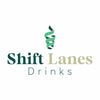How does alcohol impact our sleep?
If you’ve ever drunk alcohol at night — wine, whiskey, whatever — you’ve probably felt that you fell asleep faster. You were relaxed before bed, your mind slightly numb under the influence of the socially ever-present drink.
However, you might also have found yourself waking up feeling groggy, tired, unrestored. It was as if the sleep had not truly worked as it did on normal days without alcohol.
You aren't alone!
Alcohol affects our sleep cycles - we are exploring the reasons why it is so disruptive to both the duration and quality of sleep.
Discover why understanding these impacts can be eye-opening and motivating, urging us to seek quality rest without relying on alcohol
How does alcohol impact our sleep?

For many, the evening ritual of winding down with a glass of wine or a nightcap seems like a harmless way to ease into slumber. After all, alcohol's sedative effects can make drifting off to sleep feel effortless.
But what many don't realize is that while alcohol might help you doze off initially, it can wreak havoc on the quality of your sleep, leaving you feeling less than refreshed in the morning.
During natural sleep (no alcohol involved), your brain is very much like the conductor of a symphony orchestra. It draws you in with a soft and quiet prelude, and then it progresses through the movements (or stages) of sleep in a beautiful cycle, culminating in a finale where we wake refreshed and energized for the new day.
Throughout this symphony of sleep, your brain is performing lots of intricate maintenance, either on the body (developing, repairing and restoring) or on itself (strengthening memories, processing events of the day and making connections between your daytime experiences).
Or another way of understanding this, is a series of steps where you slowly descend to the lowest stair, the deepest level of sleep that allows your brain and
body to repair, restore and develop, and then slowly ascend those stairs again to wake up refreshed and energized.
Contrary to popular belief, the sleep induced by alcohol is not the same asnatural sleep. Instead of guiding you gently into the various stages of sleep, alcohol sedates you out of wakefulness, bypassing the body's natural sleep onset mechanisms. As a result, the sleep you experience after drinking is more akin to anesthesia—a dulling of consciousness rather than a restorative rest.
But here's where things get interesting: while alcohol might help you fall asleep faster, it doesn't help you slowly descend to the bottom of the stairs where the crucial repair and restorative functions occur. In fact, studies have shown that alcohol disrupts the normal sleep cycle, leading to fragmented sleep and frequent awakenings throughout the night. As the sedative effects wear off, you're left vulnerable to disturbances that can prevent you from entering into the deep, restorative stages of sleep.
When alcohol is metabolized in the body, it produces a by-product called aldehyde, which interferes with the brain's ability to enter REM sleep. As a result, you may spend less time in this crucial stage of sleep, leading to impaired cognitive function and memory consolidation.
At this point your body is working overtime to get rid of the toxin that is alcohol, but it only gets to do this halfway down the staircase instead of going right to the bottom or into REM sleep (the deepest part of your sleep) so you wake up feeling groggy, tired and hungover.
But the effects of alcohol on sleep go beyond just the immediate night's rest. Drinking regularly can disrupt your body's internal clock, known as the circadian rhythm, it impacts the time you go to bed, and the time you wake up. This disruption can lead to insomnia, daytime fatigue, and a host of other health problems over time.
So, what's the bottom line? While alcohol might offer a temporary reprieve from the stresses of the day, it's not a sustainable solution for quality sleep. Sleep is a vital pillar of health, and compromising on its quality can have far-reaching consequences for your overall well-being.
So, the next time you're tempted to reach for that nightcap, consider the long-term impact on your sleep and make a choice that supports your health and
vitality - this could look like a non-alcoholic drink instead.














Leave a comment